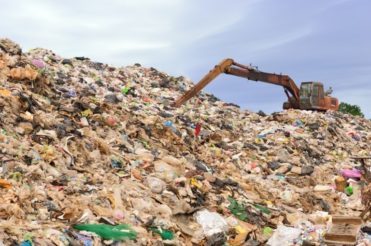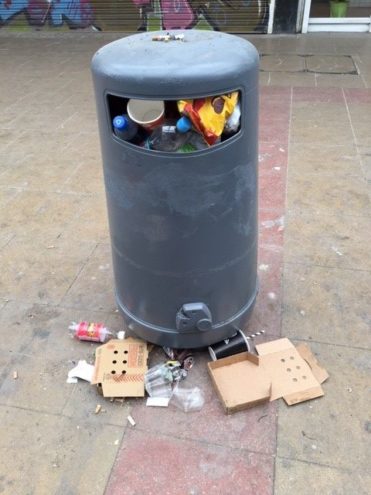Waste Plastic Products – action by government
In our other related articles we have looked at:
Plastic In The Oceans – a brief description of the issues
Waste Plastic Products – action by individuals
This series discusses plastic as a marine pollutant, concentrating on single-use plastic products which are major contributors to the problem.
In terms of what can be done, certain changes only happen when governments take an active interest (“top-down changes”), and change is definitely needed, to stem the flow of plastic into the oceans, given that it is being added to faster than we have the means to remove it.
Do We Need Plastic?
Plastic is such a versatile and useful product that its use has grown to almost every facet of modern life. Is this a problem? Not necessarily, as the ultra long life of plastic makes it a great building material; it is light and strong, so many of its uses save energy and fuel; it insulates wires, it makes clothing and footwear and thousands of everyday products. If it wasn’t so versatile, inexpensive and reliable, we would not be using it in the first place.
What is starting to concern people more and more is what happens to single-use plastic. So much plastic is used for a few seconds before being thrown away, such as in food packaging, and it is this waste that is increasingly seen as being unnecessary and harder to dispose of properly. This distinction is well defined in this article: http://www.abc.net.au/news/2018-04-30/stop-hating-on-plastic-and-learn-how-to-use-it-right:expert/9710296
What Are Single Use Plastics?
Many plastic products are designed to be used once only, such as sachets, coffee cups, fast food containers, nappies, cellophane, wet wipes and cotton buds. These are made for the convenience and tastes of consumers, whose behavior in disposal is hard to influence. Such products are known as “single-use plastics”. In addition there are plastics that can be re-used but usually are not, the most obvious being drink bottles, but also shampoo, detergents, carrier bags and many more, where ingrained habits are to use and throw them away as they are inexpensive to replace.
Industrial plastic waste is subject to much tighter regulation, so the main debate centers on consumer waste and rightly so.
Looking at plastic for the moment as a material that is proving difficult to recycle, which often becomes a pollutant if not recycled, and for which public demand is increasing, what are the priorities?
- Avoid making it for non-essential products. Recent legislation has banned the use of microbeads in cosmetics, shampoo and body washes. Can pointless products like plastic confetti not also be banned?
- Re-use. Take an empty plastic bottle with you if you are going to be needing a drink, it is not hard to carry after all.
- Where it is manufactured, make it in a form that can be immediately recycled. Not a drink bottle with a glued-on label and a lid that stays attached to the neck, made in 3 different types of plastic, none of which separate by hand.
- Provide recycling facilities to households and penalise failure to use properly. Require businesses to segregate and recycle. Provide recycling facilities in all populated public spaces.
- If all else fails, make sure plastic goes to landfill:

It will take more than just one solution; the issue of convenience and branded products is so embedded in first world culture, and aspired to by other parts of the world, that it will take concerted efforts from many people, countries and organisations to make a difference.
Can All Plastic Be Recycled?
In theory, yes. Thermoplastics are manufactured in pellet form, heated to be moulded, extruded, cast or blown into the required shape, then as they cool they retain the shape and properties required. If you grind or pulverise the same plastics into small pieces again, they can be processed as before. There are a few reasons why this does not happen:
- Contaminants. Plastics need to be separated from other materials (even other plastics) for this to work. This is ok if they are screwed on, say, but if bonded, it can be impossible to do so. Electrical cables, as they are common and usually contain valuable copper, are stripped and granulated, to enable recycling of metal and plastic. Plastic coated gift-wrap, on the other hand, cannot be separated or recycled.
- Technology. Foil/plastic laminates such as pet food pouches and crisp packets are great at preserving foodstuffs but take specialist equipment (and much washing) to recycle as park benches and the like, processes way beyond most council recycling facilities.
- Education. Many people don’t know what common products can be recycled and confuse different plastics: https://www.theguardian.com/environment/2018/mar/16/kitchen-roll-among-things-britons-wrongly-think-they-can-recycle
- This is despite many more plastics being labelled clearly with a numbered recycling mark, as covered in this interesting piece: https://www.bbc.co.uk/news/business-47161379
- Recycling Facilities. In addition to knowing what can be recycled it helps to know where, and it seems obvious that people are more likely to recycle if they don’t have to go out of their way to do so. For many householders this means recycling collections by local councils in a designated bin, where the council is relied upon to do the job for us. In many cases they do, but there is still a postcode lottery as to facilities in each area, to an alarming degree, as detailed here: https://www.bbc.co.uk/news/science-environment-45496884
These products are not just used in the home however, as packaged food and drink is consumed in public places in vast quantities. Public litter bins are common, but segregated bins for recycling are not, causing recyclable products to go to landfill. This is a challenge for local authorities, their budgets and facilities.

- Recycling Cost. Where the recycled material can be collected and processed at a profit, no council or organisation in their right minds is going to landfill it. Given the awareness of the need to recycle, any cost-neutral material is also likely to be properly treated, but when it comes to plastic, this can be a problem. One of the key properties of plastic is lack of weight, and taking plastic bottles as an example, unless crushed and baled, the cost of fuel to take them to a distant recycling plant could be more than the value of the recycled product. So for a council, it can easily be cheaper to landfill plastic waste than to recycle it, unless subsidised by central government or the council… in other words paid for by residents and tax payers. It won’t be until public opinion is so hostile to such waste, technology finds better ways of recycling it, products are universally contaminant free or plastic as a raw material becomes scarce or expensive etc – until then, it can be more expensive to recycle a drink bottle than to make a new one.
Traditional Disposal Methods
- Landfill. A lot of plastic ends up here anyway, but fortunately, to bring pressure to bear on Member States to clean up their act, the EU has very clear directives for government-down implementation, of
- A common EU target for recycling 65% of municipal waste by 2030;
- A common EU target for recycling 75% of packaging waste by 2030;
- A binding landfill target to reduce landfill to maximum of 10% of municipal waste by 2030;
- A ban on landfilling of separately collected waste
[Author’s note – at time of writing the UK is still in the EU. Would they duck these targets if they left? Tubeway Blogger hopes not]
- Incineration. Not altogether popular or necessarily efficient, but not out of the question. See this article for full information: https://www.bbc.co.uk/news/science-environment-43120041
From an environmental point of view, when we get to the choice of incineration vs landfill, we have already failed several times. Our priority should be to reduce, redesign, re-use, then recycle, before the other alternatives are even considered.
Can We Export Our Waste?
Traditionally, solid waste from advanced urbanised countries has been shipped to the developing world, including toxic waste. As the impacts are better identified and a more global approach is being taken, this is becoming harder and better regulated. The argument for exporting waste is weak – unless another country is so advanced at recycling and can make it work when we can’t, but then we would surely rather copy their methods? The heading could have read “Can we dump our problem on someone else”, as the UK had been doing just that in large quantities until China banned imports of foreign garbage a year or so ago, and other willing recipients are getting harder to find: https://www.bbc.co.uk/news/science-environment-46566795
Education and Encouragement
If we take the view that plastic waste harms the environment, and any recyclable product merely chucked away is a foolish and selfish act, then surely educating our citizens is enough to turn the tide? Call the Tubeway Blogger cynical if you want, but if just educating citizens about the health risks of smoking, alcohol and hard drugs won’t work, let us not waste our breath… educate by all means but it must be part of a package. That package is to make it more expensive or inconvenient for people to buy and dispose of the type of products that most often end up as pollutants, or “encouragement” as we’ve called it.
Do you remember when plastic bags at the checkout were free of charge and plentiful? Did anyone every use them twice except to line the kitchen bin? A simple 5p charge and legislative pressure in England, and bingo, within a year carrier bag consumption from large shops dropped by 85%. What’s more, anyone from England who had been to Wales or Scotland, where this legislation was implemented first, knew it was going to work, so there must have been some serious political lobbying to have delayed it for so long. Fans of this psychology will be pleased to know that this is planned by Defra to be extended to 10p and every shop regardless of size in 2020: https://www.bbc.co.uk/news/uk-46689684
Following the same logic, the UK Government is considering introducing a charge on single use drink bottles and cans, which can be recovered by consumers on return of the bottle, although they ducked the issue of a “latte levy” at the same time: https://www.wired.co.uk/article/plastic-bottle-deposit-scheme-uk-tax-recycling-norway
Getting back to education for a moment, it will need to include information on what happens to the products we use and throw away. What we flush for example – cotton buds and wet wipes can choke marine life and block sewers respectively. Feminine hygiene products can take 500 years to decompose. Scouring, skin scrub and cosmetic products can contain plastic microbeads, which can be eaten by the smallest seagoing organisms, and synthetic clothing will shed microfibers during washing that do the same.
Is This All Down To Central And Local Government?
No. There are good recent examples of other organisations taking non-legislated action of their own. At the 2019 Glastonbury festival, plastic drink bottles were not available on the entire site, being replaced by hundreds of free water taps for personal refillable containers. In the previous year over 1 million plastic bottles had been sold during the festival.
Morrisons supermarkets are also entering the fray, reintroducing more traditional plastic-free fruit and veg areas in their stores: https://www.scotsman.com/news/environment/morrisons-the-first-supermarket-to-ban-fruit-plastic-packaging-1-4931199
What Can Individuals Do?
Discussion on this is covered in an accompanying article: Waste Plastic Products – action by individuals
An overview of plastic marine pollution is in this article: Plastic In The Oceans – a brief description of the issues